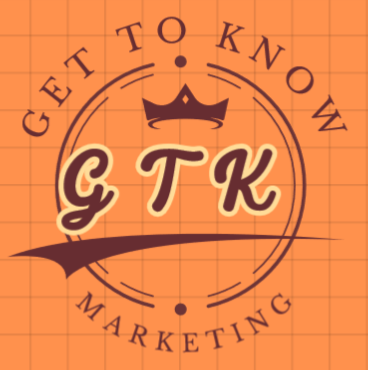The insurance industry is undergoing a significant transformation, driven by the integration of artificial intelligence (AI). By leveraging AI, insurance companies are not only improving their services but also reducing operational costs, ultimately benefiting both the insurer and the insured. In this blog post, we’ll explore how leading insurance companies are deploying AI to enhance their operations, using real-world examples.
1. Accelerating Claims Processing and Enhancing Fraud Detection
Claims processing is one of the most critical functions in the insurance industry. Traditionally, this process has been time-consuming and prone to errors, but AI is changing that.
- Anthem, Inc. has adopted AI-powered systems that streamline claims processing. By automating this workflow, Anthem has significantly reduced processing times and improved accuracy. Furthermore, their AI algorithms can detect patterns in claims data that may indicate fraud, helping to identify and mitigate fraudulent claims more efficiently.
- Zurich Insurance is another industry leader utilizing AI for fraud detection. Their AI models have reduced the time needed to detect fraudulent claims from days to hours, resulting in significant cost savings and improved security for both the company and its customers.
2. Personalizing Insurance Plans for Better Customer Engagement
Personalization is key to meeting the diverse needs of today’s insurance customers. AI enables companies to analyze vast amounts of data and offer tailored insurance plans.
- Oscar Health uses AI to create personalized insurance plans by analyzing data on user activity and healthcare usage. This approach allows them to offer recommendations that are tailored to individual health histories, resulting in higher customer satisfaction and retention.
3. Enhancing Risk Assessment with Predictive Analytics
Accurately assessing risk is crucial for setting insurance premiums and managing the risk pool. AI-powered predictive analytics is helping insurers make more informed decisions.
- Aetna, now part of CVS Health, employs AI-driven predictive analytics to assess the risk profiles of its members. By analyzing various data points, including medical history and lifestyle factors, Aetna can more accurately predict and manage the risks associated with its insurance plans.
- Cigna similarly leverages AI to analyze patient data and predict health risks. This capability allows Cigna to design better plans and manage their risk pool more effectively, resulting in more competitive pricing and better services for their customers.
4. Automating Customer Service for Enhanced Experience
Customer service is another area where AI is making a significant impact. By automating routine tasks, AI allows companies to provide faster and more consistent service.
- Geico has introduced an AI-powered virtual assistant named “Kate” to handle customer inquiries. Kate can answer questions about billing, coverage, and policy details, freeing up human agents to handle more complex issues and improving the overall customer experience.
- Allianz has also implemented AI-driven chatbots for customer service. These chatbots can manage a wide range of tasks, including answering policy-related questions, guiding users through claim submissions, and providing general support, thus reducing operational costs.
5. Promoting Preventative Care and Wellness Programs
Preventative care is an essential component of reducing healthcare costs, and AI is playing a key role in this area.
- John Hancock integrates AI with wearable technology to promote healthier lifestyles through its Vitality program. This program offers incentives, such as premium discounts, to customers who maintain an active lifestyle, which helps reduce the risk of chronic diseases and lowers overall healthcare costs.
- Discovery Health, based in South Africa, offers an AI-powered Vitality program that uses data from wearables to promote healthy behavior. By incentivizing members to stay healthy, Discovery Health reduces claims and healthcare costs, benefiting both the company and its members.
6. Optimizing Healthcare Utilization
Efficient utilization of healthcare services is critical to managing costs and ensuring that patients receive the right care at the right time.
- UnitedHealth Group uses AI to predict healthcare utilization patterns, enabling them to allocate resources more effectively. This approach helps reduce unnecessary treatments and hospital visits, optimizing care delivery and reducing costs.
- Humana similarly employs AI to analyze patient data and optimize care utilization, ensuring that members receive necessary care without incurring excessive costs.
7. Identifying Cost-Effective Care Strategies
AI is helping insurers analyze treatment outcomes and costs across large populations, enabling them to identify the most cost-effective care strategies.
- Blue Cross Blue Shield has integrated AI to analyze treatment outcomes and costs. By identifying and promoting the most effective and affordable care options, Blue Cross Blue Shield can improve patient outcomes while controlling costs.
- AXA also uses AI to analyze large volumes of claims and medical data. This analysis helps AXA negotiate better rates with providers and manage claims more efficiently, leading to significant cost savings.
8. Engaging Customers Through Education and Personalized Content
Educating customers about their health and insurance options is vital for improving engagement and satisfaction. AI can tailor this education to individual needs.
- Bupa utilizes AI to provide personalized health content and tips, helping customers make informed decisions about their health. This engagement not only improves health outcomes but also enhances customer satisfaction, making them more likely to stay with the company.
- MetLife offers an AI-driven platform that provides personalized financial and health advice. By helping customers better understand their insurance options, MetLife enhances the overall customer experience, fostering long-term loyalty.
Conclusion
AI is revolutionizing the insurance industry, providing companies with powerful tools to enhance their services and reduce costs. From automating claims processing and detecting fraud to personalizing insurance plans and optimizing healthcare utilization, AI is transforming how insurers operate. As more companies adopt these technologies, we can expect even greater advancements in the quality of service and cost efficiency in the insurance sector.
